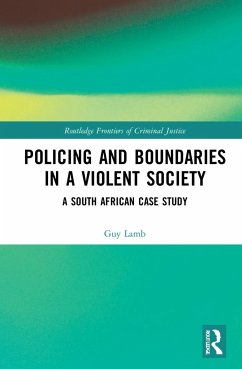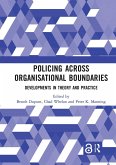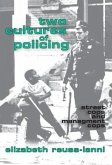This book explores how social and territorial boundaries have influenced the approaches and practices of the South Africa Police Service (SAPS). By means of a historical analysis of South Africa, this book introduces a new concept, 'police frontierism', which illuminates the nature of the relationships between the police, policing and boundaries, and can potentially be used for future case study research. Drawing on a wealth of research, this book examines how social and territorial boundaries strongly influenced police practices and behaviour in South Africa, and how social delineations amplify and distort existing police prejudices against those communities on the other side of the boundary. Focusing on cases of high-density police operations, public-order policing and the recent policing of the COVID-19 lockdown, this book argues that poor economic conditions combined with an increased militarisation of the SAPS and a decline in public trust in the police will result in boundaries continuing to fundamentally inform police work in South Africa. This book will be of interest to scholars and students interested in policing in post-colonial societies characterised by high levels of violence, as well as police work and police militarization.
Hinweis: Dieser Artikel kann nur an eine deutsche Lieferadresse ausgeliefert werden.
Hinweis: Dieser Artikel kann nur an eine deutsche Lieferadresse ausgeliefert werden.








